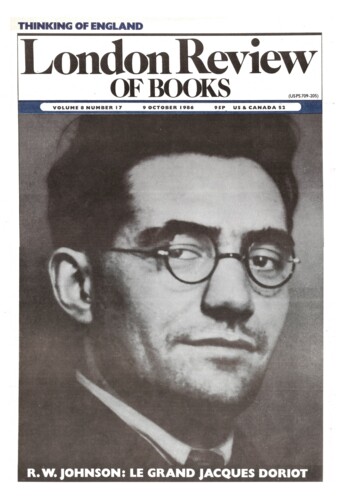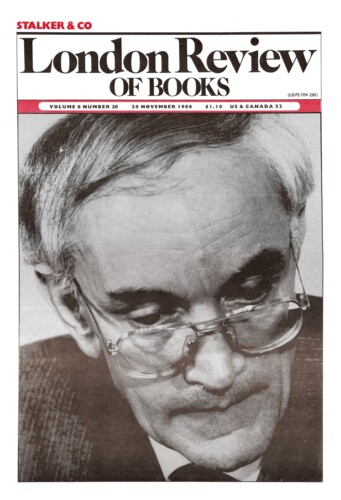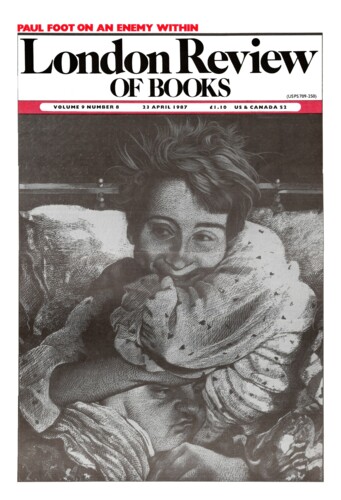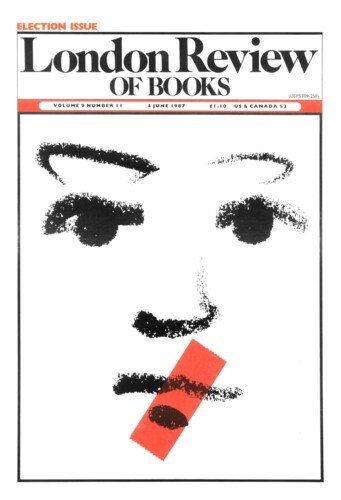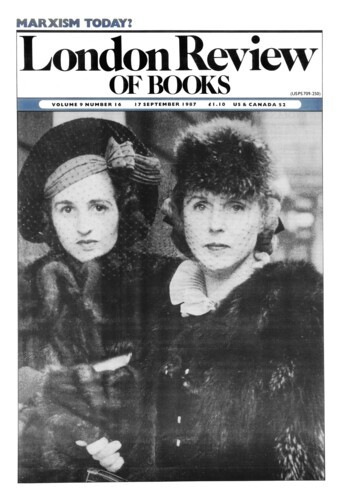Come here, Botham
Paul Foot, 9 October 1986
The first chapter heading of this book asks: ‘Is Botham in?’ The answer is yes, he is – just. He was selected for England in the last Test against New Zealand, but only grudgingly. Mike Gatting, England’s captain, explained that the real problem was Botham’s bowling. Botham took a wicket with his first ball, another the next over, another soon after that. Then he scored an astonishing 59 not out in 32 balls. Before long, he was having a row with Somerset County Cricket Club Committee, which sacked his two friends Richards and Garner. The row seemed to inspire him. He ended the season with the most sustained display of boundary-hitting in the history of the game. Cricket lovers everywhere rejoiced – not just, I think, at the glory of the stroke play but because every Botham six and every Botham wicket cocked a mighty snook at the gentlemen of the MCC and the Test and County Cricket Board.’
